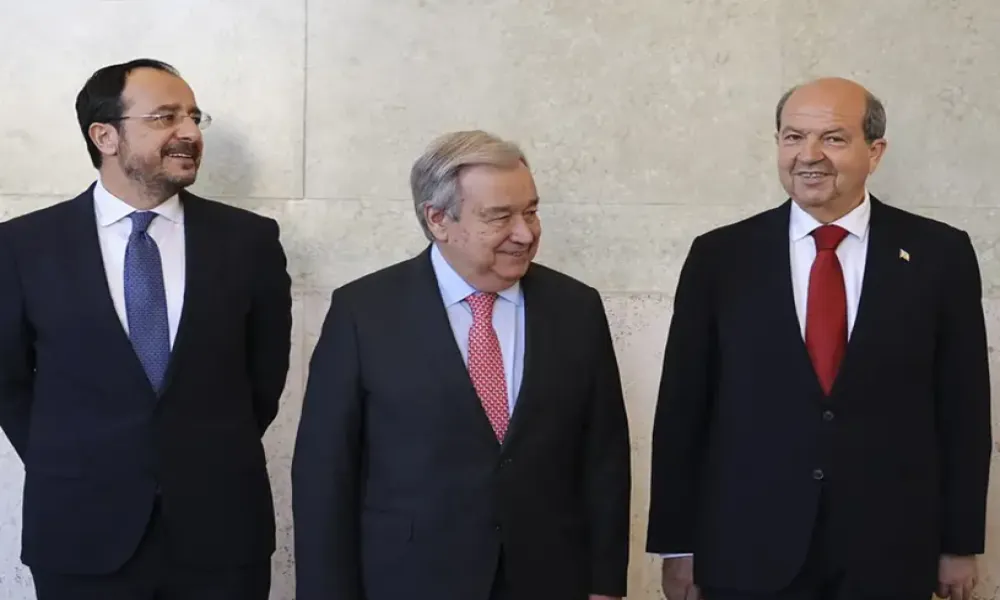Tomorrow’s tripartite meeting between UN Secretary-General António Guterres, President Nikos Christodoulides, and Turkish Cypriot leader Ersin Tatar is shaped by two key factors that define its scope and potential impact.
The first factor is the upcoming leadership election in the north, scheduled for three weeks from now, which limits any meaningful outcome from this weekend’s talks.
The second factor is the realistic assessment of the situation on the ground. Despite over a year of trilateral meetings, two multilateral conferences in Geneva and New York, and numerous efforts by the UN Secretary-General’s Personal Envoy, María Ángela Holguín, even the most basic and low-stakes issues such as Confidence-Building Measures (CBMs) have seen no progress.
Meeting likely in November
Following his recent meeting with Guterres, President Christodoulides stated that a broader meeting on the Cyprus problem is likely to take place in the autumn, possibly in November. Saturday’s tripartite meeting will primarily serve to review the current state of affairs and schedule the next round of talks after the elections in the north, i.e., after 19 October.
“I believe, based on my discussion with the Secretary-General, that this broader meeting will take place in November, with the aim of restarting negotiations,” the President noted.
Current situation is unsustainable
The United Nations had placed significant hope in CBMs as a method to revive dialogue and build momentum toward substantive issues. That strategy has fallen flat, as even the opening of additional crossing points remains stalled.
The UN believed that progress on CBMs could positively shift public sentiment, improve daily life, and create the necessary political climate for renewed talks. With this goal in mind, Holguín visited Cyprus in early September to assess the mood on both sides. However, she reportedly found no sign of convergence, even on the issue of crossing points.
This grim reality was echoed in Holguín’s recent remarks, where she pointedly stated that “everything now depends on the two leaders.” While not an outright expression of pessimism, her words reflect the growing sense of urgency and fatigue: the status quo is unsustainable.
As she emphasised: “The UN, myself, and the Secretary-General are doing everything we can, but the leaders must take decisions.” This same sentiment is expected to guide Guterres’ tone in tomorrow’s meeting.
Possible developments?
The ball is now squarely in the court of the leaders, who must show willingness to engage with the roadmap outlined by the UN’s recent initiatives. Yet, how can this be realistically expected when the outcome of the tripartite meeting is largely dependent on the pre-election atmosphere in the Turkish Cypriot community?
No one within the UN Secretariat holds out hope for a breakthrough, not even on small-scale CBMs, while the political climate in the north remains overheated due to the election campaign.
That said, some sources suggest that Ersin Tatar may seek to soften his stance on humanitarian issues like crossing points in order to gain favour or project a more conciliatory image without abandoning his two-state narrative.
Such a move could be politically advantageous, especially given that recent polls are not in his favour. Still, sources within the north caution that this scenario is unlikely, even if it would be a rational move from a strategic standpoint.
Ultimately, Guterres is expected to use the tripartite meeting not as a venue for breakthroughs, but as a means to sustain the UN’s involvement and preserve momentum until a new Turkish Cypriot leader is elected. Only then can there be a realistic chance of reviving the peace process.
